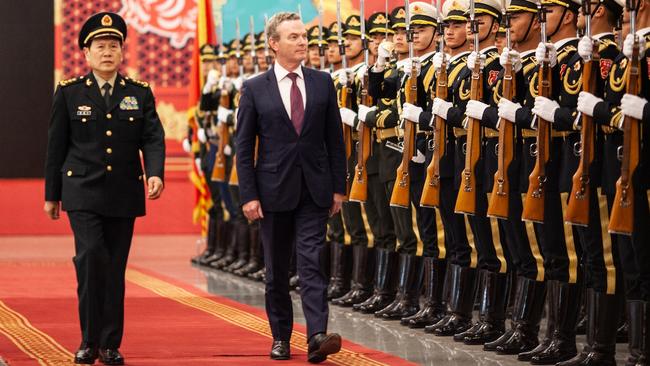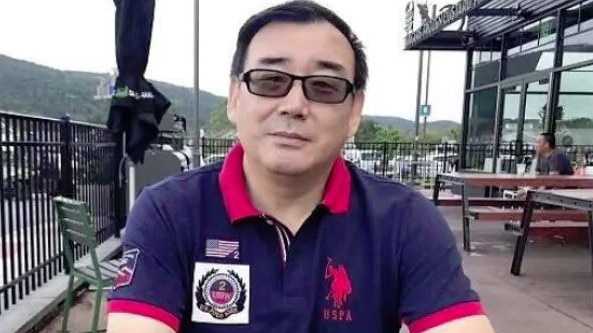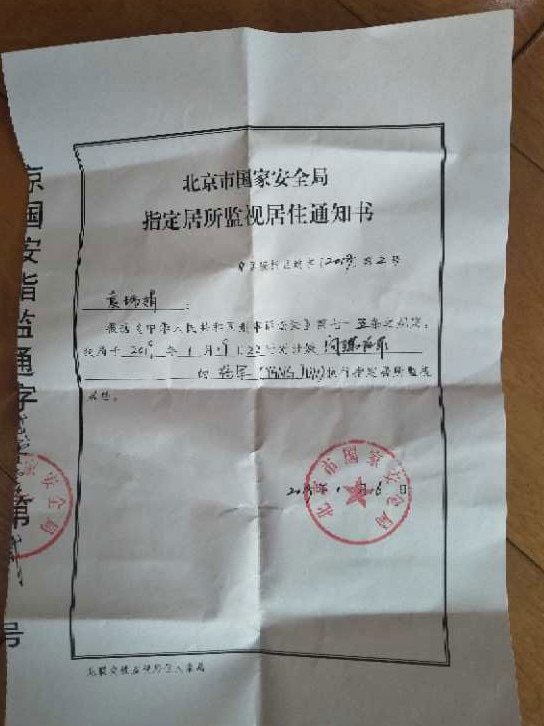Aussie writer Yang Hengjun a ‘threat to China’s security’
China has accused an Australian Chinese citizen of endangering its national security and is holding him at an unknown location.

A Chinese lawyer has warned Australian Chinese writer Yang Hengjun could be held for as long as six months without being formally processed by China’s legal system, as Australian government MPs called for his immediate release.
China’s Foreign Ministry spokeswoman, Hua Chunying, said yesterday Yang had been arrested by Beijing Municipal State Security Bureau, suspected of “endangering state security” while his lawyer Mo Shaoping said he was accused of espionage.
He is being held in “residential surveillance at a designated location” which refers to a form of detention in China where a suspect is held at an unknown location.
David Zhang, a lawyer who has dealt with a number of similar cases, said this could last for as long as six months.
“Residential surveillance means you can be detained for six months in one location but it’s not a detention centre or a prison, it’s usually a location that’s slightly more relaxed but you still can’t easily communicate with family members or your lawyers,” he told ABC Radio.
Mr Yang’s lawyer Mr Mo told The Australian last night that he had not been able to visit Mr Yang.
Mr Zhang said if investigators have no evidence of wrongdoing they could release him on bail or send him to another form of detention.
If he is sent to this more formal form of detention, he then has to be charged within 37 days, Mr Zhang said.
“This would mean investigators have 37 days to hold him while they make a decision whether or not to formally arrest him,” he said.
Andrew Hastie, a Liberal MP who is chair of Parliament’s intelligence committee and a critic of the Chinese government, called on Beijing to release Mr Yang.
“There is only one way to make this right: Dr Yang needs to reappear on an Australian-bound aircraft in the next few days, “ he said in a statement.
China has accused the Australian Chinese citizen of endangering its national security.
The detention of writer Yang Hengjun — known for promoting democracy in the Communist state — has triggered a diplomatic crisis that has disrupted the visit of Defence Minister Christopher Pyne to Beijing.
China’s Foreign Ministry spokeswoman, Hua Chunying, said yesterday Yang had been arrested by Beijing Municipal State Security Bureau, suspected of “endangering state security”.
The incident comes after Australia publicly protested against China’s detention of two Canadian citizens, entrepreneur Michael Spavor and former diplomat Michael Kovrig, who are also being held on the same accusations of “criminal activities endangering state security”.
Detaining the Canadians was seen as a possible retaliation against Canada’s arrest of Huawei executive Meng Wanzhou.

Foreign Minister Marise Payne yesterday signalled she would be disturbed if the arrests were related, but clarified there was no suggestion so far of any connection.
“I am very concerned, as I have said, and the government is concerned about the nature of Mr Yang’s detention,” Senator Payne said.
Yang’s lawyer, Mo Shaoping, told The Australian yesterday that his client’s wife, Yuan Rui Juan, had been given legal notice by the State Security Bureau in Beijing that Yang was “suspected of espionage”. Mr Mo said that, under Chinese law, espionage was “a severe crime and could possibly lead to severe punishment up to death”.
Australian authorities had been kept in the dark about why Yang was seized after flying into Guangzhou airport on Saturday.
Mr Pyne flew into China yesterday for what was supposed to be a visit to meet Chinese military leaders. He said no reasons had been given to explain Yang’s detention.
“I have no further and better particulars on the reasons for Mr Yang’s detention or what the plan is for Mr Yang,” Mr Pyne said. “But obviously we are seeking that information.”
Mr Pyne said he planned to raise the matter with China’s Minister for National Defence, Wei Fenghe, and inquire about Yang’s welfare. In a sharp rebuke of the Chinese government, Mr Pyne noted that Beijing had breached a consular agreement aimed at providing diplomats notification of those who have been detained within three days, and consular access within five days.
“It took four days for that (notification) to be provided to Australia,” Mr Pyne said.
“Obviously, that is disappointing and we’ll be raising that too with Chinese government officials.”
Senator Payne said the government expected “full consular access at the earliest possible opportunity”.

Feng Chongyi, a University of Technology Sydney professor and a friend of Yang, said Mr Mo had told him that Yang was being held in “residential surveillance at a designated location”.
“He has confirmed my fears,” Dr Feng said.
“At this location they can allow visits by (a) lawyer, but if they do not (a) want lawyer to visit him they can cite the excuse that, because the case involves state secrets, no visits may be allowed. Now it depends how the Chinese authorities want to deal with this case.”
Yang, 53, a novelist and commentator who worked for the Chinese Foreign Ministry before moving to Australia and becoming a citizen in 2000, has been living for the past few years as a visiting scholar at Columbia University in the US.
His writing has been critical of the Chinese government but in recent years he has avoided making public criticisms of the government.
Yang had been warned by friends that it was too dangerous for him to travel to China but he had argued that he believed he was safe from arrest.
The Australian understands Yang was detained by a squad of security agents after arriving from New York at Guangzhou airport with his wife on Saturday.
Ms Yuan, who has also been out of contact, was briefly required to travel to Beijing, but she is not believed to be detained.
In her last post on social media, Ms Yuan said from Beijing: “It’s been a long time. My eyes are filled with tears.”




